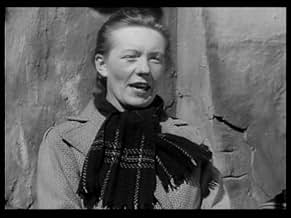The Polish movie Zakazane piosenki (1947) was shown in the U. S. with the translated title Forbidden Songs. The film was directed by Leonard Buczkowski.
Remember that the movie was made just two years after WW II ended. Warsaw was still in ruins, and Poland was under Soviet control. The fact that the film was made at all is amazing.
Empires have tried to eliminate Poland as a nation for centuries. The Poles have continued to be a nation through bravery, art, music, and language.
The movie points out that the Polish people resisted the German occupation by singing songs making fun of the German occupiers, and by playing forbidden music. For example, Chopin's music was outlawed by the Germans. However, Poles would gather at "Chopin evenings," which was dangerous.
Because the movie is so old, and the equipment used was so basic, the print we watch is noisy and rough. If you're looking for a crisp, polished film, this isn't it. What you get in this film is a unique view into Polish history by people who had lived through it just a few years earlier.
We saw this movie in Rochester's wonderful Dryden Theatre at The George Eastman Museum. It was presented as part of the Polish Film Festival sponsored by the Skalny Center of the University of Rochester.
Forbidden Songs has a a fairly low IMDb rating of 7.1. I thought that it was better than that, and rated it 8.
P. S. What you can't see in the movie is the fact that Russia had invaded Poland from the east when Germany invaded it from the west. The reason there were Germans occupying Warsaw was because the Germans pushed the Russians out. It's true that at the end of the war the Russians pushed out the Germans, but they themselves were brutal occupiers. Poland has a very long and unhappy history, but it has managed to survive.

















